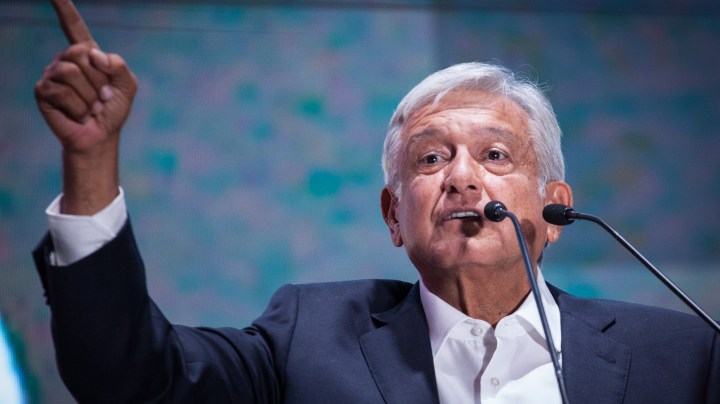In 2006, Andrés Manuel López Obrador lost to Felipe Calderón by just 0.56 percent. In 2012, he came second to Mexico’s current president, Enrique Peña Nieto. But on Sunday night – his third time running – AMLO’s three opponents conceded. With more than 53 percent of the vote, 64-year-old AMLO, who formed the Movimiento Regeneración Nacional party in 2014, fired up a country with his promise to champion the poor, stand up to US President Donald Trump, and move away from the establishment – one that has contributed to the violence and corruption present in the country. While some welcome the change, others criticize him for his quickly changing policies. Still others, compare him to the late Venezuelan President Hugo Chávez, saying that AMLO’s leftist politics will weaken Mexico’s economy.
RELATED: 5 Things to Know About Claudia Sheinbaum, the First Woman Elected Mayor in Mexico City
On Sunday, Mexicans also hit the polls to elect more than 3,400 local, state, and federal positions, including a new national Congress. With so many seats up for grabs, it was clear that a major shift could take place throughout the country. As a result, politicians became the targets of cartels trying to influence the election. Since kicking off in September 2017, the elections have become violent. An estimated 130 politicians reportedly lost their lives at the hands of cartels.
There’s a lot to unpack after the election, including the unprecedented nature of AMLO’s win, which is just one reason why Sunday was so historically significant. Below, check out why Mexico’s elections were so important.
1
An unprecedented number of women ran.
More than 3,000 women ran for office, prompting Mexican media to call 2018 “el año de la mujer.” One of the reasons more women have run is because of a four-year-old law that requires that half of each political party’s candidates are female, according to NPR. It’s not a law that has always been taking seriously – sometimes women are placed in races where they have low odds – but this year may make way for more women in the future.
2
It was the biggest election in Mexico's history.
The Instituto Nacional Electoral (INE) says there were 18,311 positions up for grabs at once, and more people than ever turned out to vote. A record 89 million people were eligible to vote.
3
AMLO received the most votes.
AMLO won with about 53 percent of the vote. According to BBC, he is the president who has received the most votes in the country’s history. Though the specifics have yet to be published, he’s likely to make history in this regard as well.
4
AMLO is the first leftist president in decades.
PRI and PAN have been in power for a very long time. Despite the fact that his candidates argued that AMLO’s policies would negatively affect Mexico, he is now the first leftist president in decades. “AMLO, at least in his rhetoric, represents a shift much to the left of what we’ve ever seen nationally,” Andrés Rozental told the Washington Post.
